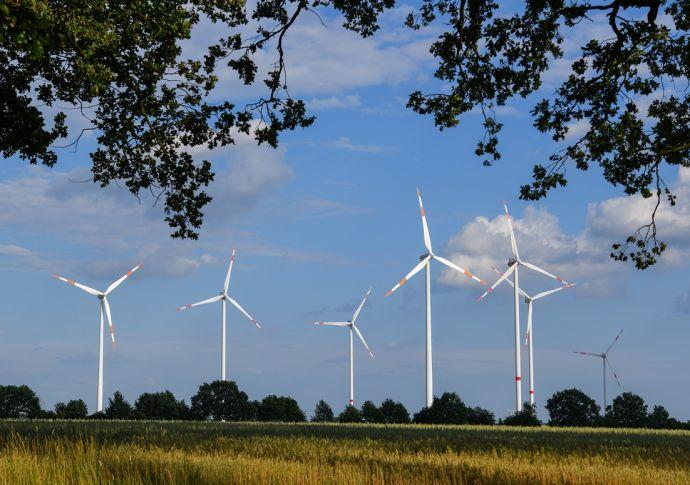
Sieversdorf, Germany: Windmills stand on a field against a clear blue sky. (picture alliance/Patrick Pleul/dpa-Zentralbild/ZB)
The share of renewable energies that make up Germany's gross energy consumption has risen - but the EU country is still far from its 2020 renewable enegry target.
In the first half of 2018, the share of renewable energies being used by Germans was 14 percent, compared to 13.32 percent in the same period in 2017 according to German energy economics group, AG Energiebilanzen.
The total energy consumption of oil and natural gas fell by 1 percent in the first six months of 2018.
Mineral oil accounted for 33.3 percent and natural gas for 25.5 percent of the gross energy consumption. Brown coal made up 10.9 percent of usage followed by hard coal with 9.9 percent.
German politician and environmental spokeswoman JuliaVerlinden said that while the increase in wind, solar and hydropower is encouraging, the gains made by renewable energy sources were not nearly enough.
"The current figures should not blind us from the fact that the share of renewable energy sources in Germany is far too low," said Verlinden, Bundestag parliamentary member from The Green/90 Alliance in Berlin on Tuesday.
"Only two years out from the deadline, and we still have a long way to go," she said. Verlinden emphasized that Germany has only achieved 18 percent of the binding target for 2020 laid out by the EU.
"The government must accelerate the use of renewable energy while making sure that the consumption of coal, oil and gas decreases significantly," she added.
The German Renewable Energy Federation (BEE) presented a prognosis that the percentage of renewable energy in the German gross energy consumption in 2020 will be in the range of 16.2 to 16.4 percent.

Notice: No person, organization and/or company shall disseminate or broadcast the above article on Xinhua Silk Road website without prior permission by Xinhua Silk Road.




 A single purchase
A single purchase









